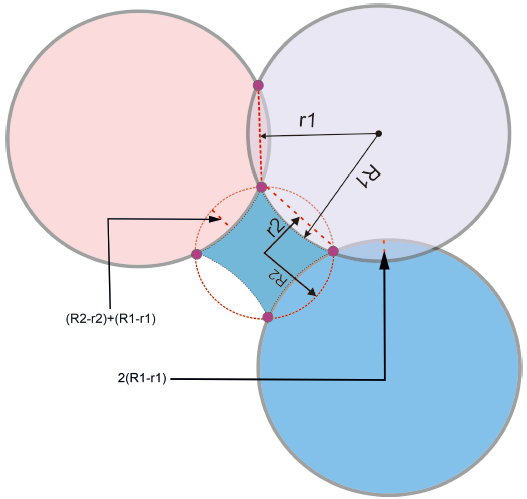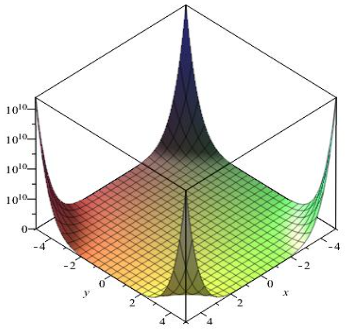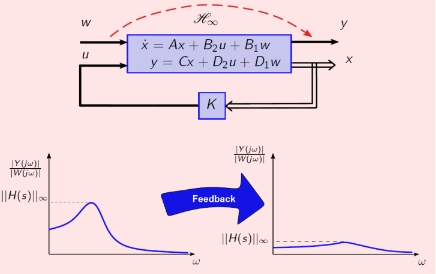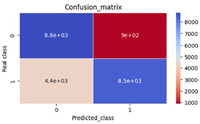Modelling the dynamics of syphilis infection with personal protection and treatment as optimal control strategies
Abstract
Syphilis is a sexually transmitted infection which when left untreated would lead to major health problems. Syphilis can easily be contracted by direct contact with Syphilis sore during vaginal, anal, or oral sex. Syphilis can also be passed on from an infected mother to her unborn child. In this paper, a nonlinear deterministic model of Syphilis disease was constructed to determine the dynamics of Syphilis infections. The study deduced model’s equilibria and analyzed the local and global stability of these equilibria. The model was extended to optimal control problem by adding time-dependent controls that helped characterize a range of possible controls that minimized the disease. The control system was solved qualitatively and numerically to evaluate the effectiveness of the considered controls using Pontryagin’s Maximum Principle. The analysis indicated that strategies B and C are considered most effective as they substantially minimized the exposed, asymptomatic and symptomatic infectious. We recommend that stakeholders should consider strategy B and C in their effort to miti-gate the disease from the population as they all have the same effect of substantially minimizing the exposed, symptomatic and asymptomatic populations.
References
[1]Peterman TA, Su J, Bernstein KT, Weinstock H. Syphilis in the united states: on the rise? Expert Review of Anti-infective Therapy, 2015; 13(2): 161–168.
[2]Fonseca E, García-Silva J, del Pozo J, et al. Syphilis in an hiv infected patient misdiagnosed as leprosy. Journal of Cutaneous Pathology, 1999; 26(1): 51–54.
[3]Simms I, Tookey PA, Goh BT, et al. The incidence of congenital syphilis in the united kingdom: February 2010 to January 2015. BJOG: An International Journal of Obstetrics & Gynaecology, 2017; 124(1): 72–77.
[4]Dev R, Adhikari SP, Dongol A, et al. Prevalence assessment of sexually transmitted infections among pregnant women visiting an antenatal care center of nepal: Pilot of the world health organization’s standard protocol for conducting sti prevalence surveys among pregnant women. Plos one, 2021; 16(4): e0250361.
[5]Otoo D, Abeasi IO, Osman S, et al. Mathematical modeling and analysis of the dynamics of hepatitis b with optimal control. Commun. Math. Biol. Neurosci., 2021; 2021: 43.
[6]Osman S, Otoo D, Sebil C, et al. Bifurcation, sensitivity and optimal control analysis of modelling anthrax-listeriosis co-dynamics. Commun. Math. Biol. Neurosci., 2020; 2020: 98.
[7]Otoo D, Osman S, Poku SA, et al. A deterministic model for the transmission dynamics of tuberculosis (tb) with optimal control. Commun. Math. Biol. Neurosci., 2021; 2021: 56.
[8]Koumans EK, Farley TA, Gibson JJ, et al. Characteristics of persons with syphilis in areas of persisting syphilis in the united states: sustained transmission associated with concurrent partnerships. Sexually Transmitted Diseases, 2001; 28(9): 497–503.
[9]Otoo D, Osman S, Poku SA, et al. Dynamics of tuberculosis (tb) with drug resistance to first-line treatment and leaky vaccination: A deterministic modelling perspective. Computational and Mathematical Methods in Medicine, 2021, 2021.
[10]Spicknall IH, Kreisel KM, Weinstock HS. Estimates of the prevalence and incidence of syphilis in the united states, 2018. Sexually Transmitted Diseases, 2021; 48(4): 247–252.
[11]Osman S, Makinde OD, Theuri DM. Mathematical modelling of listeriosis epidemics in animal and human population with optimal control. Tamkang Journal of Mathematics, 2020; 51(4): 261–287.
[12]Otoo D, Tilahun GT, Osman S, et al. Modeling the dynamics of tuberculosis with drug resistance in north shoa zone, oromiya regional state, ethiopia. Commun. Math. Biol. Neurosci., 2021; 2021: 12.
[13]Osman S, Omari-Sasu AY, Boadi RK. Logit model for the determinants of drug driving in ghana. International Journal of Statistics and Applications, 2016; 6(6): 339–346.
[14]Lajmanovich A, Yorke JA. A deterministic model for gonorrhea in a nonhomogeneous population. Mathematical Biosciences, 1976; 28(3-4): 221–236.
[15]Otoo D, Edusei H, Gyan A, et al. Optimal prevention of hiv-aids with emphasis on unprotected and unnatural canal activities: a deterministic modelling perspective. Commun. Math. Biol. Neurosci., 2023; 2023: 54.
[16]Hethcote HW. The mathematics of infectious diseases. SIAM Review, 2000; 42(4): 599–653.
[17]Otoo D, Gyan A, Edusei H, et al. Global stability analysis and optimal prevention of covid-19 spread in ghana: A compartmental modelling perspective. Commun. Math. Biol. Neurosci., 2023; 2023: 86.
[18]Shuai Z, van den Driessche P. Global stability of infectious disease models using lyapunov functions. SIAM Journal on Applied Mathematics, 2013; 73(4): 1513–1532.
[19]Njeuhmeli E, Schnure M, Vazzano A, et al. Using mathematical modeling to inform health policy: a case study from voluntary medical male circumcision scale-up in eastern and southern africa and proposed framework for success. PloS one, 2019; 14(3): e0213605.
[20]Mishra S, Fisman DN, Boily MC. The abc of terms used in mathematical models of infectious diseases. Journal of Epidemiology & Community Health, 2011; 65(1): 87–94.
[21]Feldman J, Mishra S. What could re-infection tell us about r0? a modeling case-study of syphilis transmission. Infectious Disease Modelling, 2019; 4: 257–264.
[22]Champredon D. Modelling the spread of infectious diseases. PhD thesis, 2016.
[23]Anderson RM, Garnett GP. Mathematical models of the transmission and control of sexually transmitted diseases. Sexually Transmitted Diseases, 2000; 27(10): 636–643.
[24]Garnett GP, Anderson RM. Sexually transmitted diseases and sexual behavior: insights from mathematical models. Journal of Infectious Diseases, 1996; 174(Supplement_2): S150–S161.
[25]Kungurv NV, Ufimtseva MA, Malishevskaya NP, et al. Epidemiological role of migrants in the propagation of syphilis in the territory of urals, siberia and far east. Vestnik Dermatologii i Venerologii, 2010; 86(2): 4–9.
[26]Van den Driessche P, Watmough J. Reproduction numbers and sub-threshold endemic equilibria for compartmental models of disease transmission. Mathematical Biosciences, 2002; 180(1-2): 29–48.
[27]Osman S, Togbenon HA, Otoo D. Modelling the dynamics of campylobacteriosis using nonstandard finite difference approach with optimal control. Computational and Mathematical Methods in Medicine, 2020, 2020, 8843299.
[28]Diekmann O, Heesterbeek JAP, Metz JAJ. On the definition and the computation of the basic reproduction ratio r 0 in models for infectious diseases in heterogeneous populations. Journal of Mathematical Biology, 1990; 28(4): 365–382.
[29]Quandt J. On the hartman-grobman theorem for maps. Journal of Differential Equations, 1986; 64(2): 154–164.
[30]Castillo-Chavez C, Feng Z, Huang W, et al. On the computation of r~ 0 and its role in global stability. IMA Volumes in Mathematics and Its Applications, 2002; 125: 229–250.
[31]Osman S, Makinde OD. A mathematical model for co-infection of listeriosis and anthrax diseases. International Journal of Mathematics and Mathematical Sciences, 2018, 2018(1): 1725671.
[32]Osman S, Tilahun GT, Alemu SD, et al. Analysis of the dynamics of rabies in north shewa, ethiopia. Italian J. Pure Appl. Math., 2022; 48: 877–902.
[33]Karanja TW, Osman S, Wainaina M. Analysis and modelling of ringworm infections in an environment. Global Journal of Pure and Applied Mathematics, 2019; 15(5): 649–665.
[34]Otoo D, Abeasi IO, Osman S, et al. Stability analysis and modeling the dynamics of hepatitis b with vaccination compartment. Italian J. Pure Appl. Math, 2022; 48: 903–927.
[35]DeJesus EX, Kaufman C. Routh-hurwitz criterion in the examination of eigenvalues of a system of nonlinear ordinary differential equations. Physical Review A, 1987; 35(12): 5288.
[36]Musyoki EM, Ndungu EM, Osman S. A mathematical model for the transmission of measles with passive immunity. Int. J. Res. Math. Stat. Sci., 2019; 6(2): 1–8.
[37]La Salle JP. The stability of dynamical systems. SIAM, 1976.
[38]Onsongo WM, Mwini ED, Nyanaro BN, et al. The dynamics of psittacosis in human and poultry populations: a mathematical modelling perspective. J. Math. Comput. Sci., 2021; 11(6): 8472–8505.
[39]Kopp RE. Pontryagin maximum principle. In Mathematics in Science and Engineering, volume 5, pages 255–279. Elsevier, 1962.
[40]Fleming WH, Rishel RW. Deterministic and stochastic optimal control, volume 1. Springer Science & Business Media, 2012.
[41]Mitchell KM, Cox AP, Mabey D, et al. The impact of syphilis screening among female sex workers in china: a modelling study. PLoS One, 2013; 8(1): e55622.
[42]Selmane S. Optimal control applied to resistance strategies for the transmission dynamics of syphilis. University of Science and Technology Houari Boumediene, Algeria, 2014.
[43]Omame A, Okuonghae D, Nwafor UE, et al. A co-infection model for hpv and syphilis with optimal control and cost-effectiveness analysis. International Journal of Biomathematics, 2021; 14: 2150050.
Copyright (c) 2024 Elvis Kobina Donkor, Bismark Ansu , Shaibu Osman , Dominic Otoo , Winnie Mokeira Onsongo , Ernest Yeboah Boateng

This work is licensed under a Creative Commons Attribution 4.0 International License.











